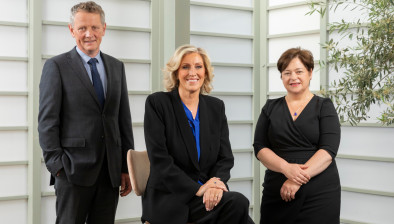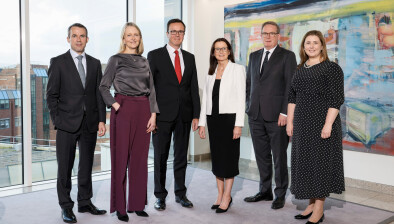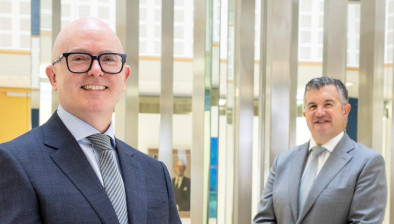Supreme Court: Appeal in €11.4m debt recovery proceedings dismissed

The Supreme Court has dismissed an appeal concerning the effect of consumer protection legislation on the activities of a ‘credit servicing’ firm.

About this case:
- Citation:[2025] IESC 3
- Judgment:
- Court:Supreme Court
- Judge:Mr Justice Gerard Hogan
Delivering judgment for the Supreme Court, Mr Justice Gerard Hogan stated: “As the conduct of Cave Projects is not ex facie illegal, if Mr Kelly wished this court to act at this stage on the alleged illegality it would be necessary for him to demonstrate the existence of persuasive and comprehensive evidence of such illegality.”
Background
In 2007, Bank of Ireland (BOI) advanced a loan facility of approximately €12 million to a partnership of five persons, including the appellant, Mr Kelly, to facilitate the commercial development of lands in Clare, Limerick and Galway.
The loan was called in by BOI in January 2011 and proceedings issued against the five debtors. The National Asset Management Agency (NAMA) acquired the loan, subsequently selling the loan to the respondent in 2013.
The High Court
The respondent was substituted into the proceedings in lieu of BOI. The respondent reached agreement with all of the defendants except Mr Kelly, and so judgment was entered as against him alone by the High Court in the sum of €11.4 million in 2022. Mr Kelly appealed to the Court of Appeal.
The Court of Appeal
Shortly prior to the hearing of the appeal, the Central Bank issued a public notice in September 2023 to the effect that it believed that the respondent was engaged in credit-servicing services without authorisation from the Central Bank as a credit servicing firm.
Mr Kelly sought to rely on the notice as retrospectively depriving the respondent of the legal right to acquire the debt in the first place, which he suggested rendered any action taken by the respondent on foot of the agreement also illegal.
The Court of Appeal admitted the notice de bene esse, but determined that it had not been pleaded in Mr Kelly’s defence and that it was not the subject of any evidence before the High Court.
The appeal having been dismissed, Mr Kelly was granted leave to appeal to the Supreme Court on the credit servicing/notice issue, which he considered was comprised of three sub-issues:
- Whether Mr Kelly was entitled to raise the notice issue?
- If so, whether the respondent was engaged in credit servicing without authorisation insofar as the appeal was concerned?
- If the answer to the previous questions was in the affirmative, what implications would that have for the appeal which was before the Supreme Court?
The Supreme Court
Mr Justice Hogan considered inter alia whether the Supreme Court could properly admit the notice issue on appeal, having regard to Mr Kelly’s contention that illegality need not be pleaded, but could simply be brought to the court’s attention.
Noting that “the reception of such entirely new arguments on appeal remains very much the exception” and that any determination as to whether the respondent was engaged in credit servicing would fall to be decided by reference to oral evidence, the court found that no exceptional circumstances existed such as to warrant a departure from usual practice and approach.
Mr Justice Hogan expressed doubt that Part V of the Central Bank Act 1997 (as amended) applied to the respondent’s activities, noting that it was unclear whether the definition of ‘credit servicing’ in s.28 of the 1997 Act extended to the prosecution of debt recovery actions (and in particular, the action before the court), and whether same applied to proceedings pending at the time of the commencement of the relevant amendments to the 1997 Act in 2015, 2018 and 2022.
The judge further noted that even if the respondent was non-compliant with the 1997 Act, it was unclear whether that in itself could justify the termination of the proceedings.
In this regard, Mr Justice Hogan highlighted: “If the Oireachtas had intended that these important legislative changes could apply with retrospective effect to litigation which had been commenced well in advance of these changes, one would expect that this would have been stated with pellucid clarity.”
In particular, the court considered that the right to sue for the debt was a chose in action of the respondent’s and that “the construction of that provision thus contended for by Mr Kelly were held to be correct it may have the effect that Cave Projects’ entitlement to pursue its cause of action would be significantly compromised with retrospective effect”.
The Supreme Court observed: “While it is therefore both impossible and unnecessary in these circumstances to express a final view on this question, it is perhaps sufficient to say that in view of the reasoning of this court in cases such as Hamilton and the Health (Amendment)(No.2) Bill such an interpretation of s. 28 would raise significant issues having regard to the provisions of Article 40.3.2⁰ of the Constitution.”
The Court continued: “All of this means that the Birkett v. Acord Business Machines Ltd. [1999] 2 All ER (Comm) 429 test of persuasive and comprehensive evidence of illegality has not been met by Mr Kelly in the present case. The common law presumption against retrospective effect strongly leans against these legislative changes applying retrospectively to the existing proceedings.”
In the circumstances, Mr Justice Hogan confirmed that Mr Kelly had failed to satisfy the burden of demonstrating evidence such as might have entitled the Supreme Court to act on the basis of the unpleaded illegality.
Conclusion
Accordingly, the Supreme Court dismissed the appeal and affirmed the decision of the Court of Appeal rejecting Mr Kelly’s entitlement to raise the credit servicing issue.
Cave Projects Ltd v Gilhooley & Ors [2025] IESC 3










